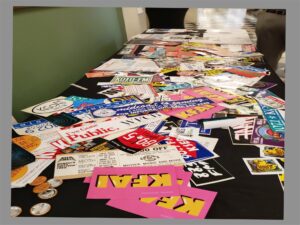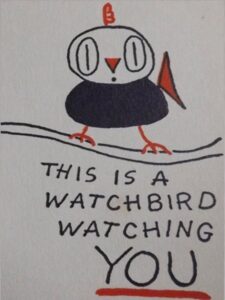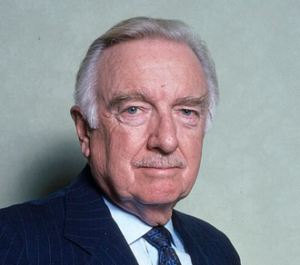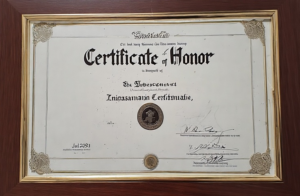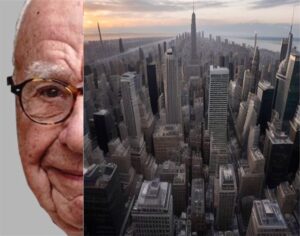
AP – Andrew Harnik photo
Article in Columbia Journalism Review by Liam Scott, 3/18/25
Headline: “The Last Days at Voice of America“
Subhead: “Covering the press freedom beat at VOA, I got a front-row seat to its demise.”
“On Saturday, about thirteen hundred Voice of America staffers, myself included, were placed on administrative leave. VOA’s final broadcast went out; its website was updated one last time. For the first time since its creation, in 1942, to combat Nazi propaganda, VOA went silent.
As a press freedom reporter, I’ve spent the past few years constantly interacting with groups like the Committee to Protect Journalists and Reporters Without Borders. But this time, it was my editor, Jessica Jerreat, and I who reached out to sound the alarm. I wasn’t acting in an official capacity—in fact, I had been ordered not to work—but I felt I had to do something.
Dozens of VOA staffers in Washington are on J-1 visas, and if they lose them, they may have to return to countries whose governments have a record of jailing critics. Two VOA contributors are imprisoned in Myanmar and Vietnam, and I didn’t want them to be forgotten. . . .”
https://www.cjr.org/first_person/last-days-voice-of-america-voa-trump-kari-lake.php
—–
Article in The Hill by Dominick Mastrangelo, 3/18/25
Headline: “Trump’s silencing of Voice of America sparks shock, outrage”
“President Trump’s decision to gut the government agency that oversees Voice of America (VOA) has shocked staffers, who have been ordered to stop working, and fueled concern about the U.S. retreating as a champion of press freedom worldwide. . .”
“Employees who spoke with The Hill this week described a chaotic span of 48 hours after employees received an email Saturday telling them to cease all reporting until further notice. . .”
https://thehill.com/homenews/media/5201754-voa-shut-down-trump/
– – – – –
Article in Al Jezeera by Staff, 3/17/25
“United States President Donald Trump’s administration has begun laying off staff at Voice of America after signing an executive order placing nearly all employees at the government-funded media network on leave.
“VOA employees working on a contractual basis on Sunday received an email informing them that they were being terminated effective March 31.
“In the email, which was seen by Al Jazeera, the US Agency for Global Media (USAGM) said contractors must ‘cease all work immediately’ and were ‘not permitted to access any agency buildings or systems’ . . “.
“Trump’s directive is the latest in a series of moves to draw condemnation from media freedom advocacy groups, including Reporters Without Borders and the Committee to Protect Journalists, which branded the latest order ‘dystopian’. . . ”
https://www.aljazeera.com/news/2025/3/17/trumpadministration-starts-mass-layoffs-at-media-outlet-voice-of-america
